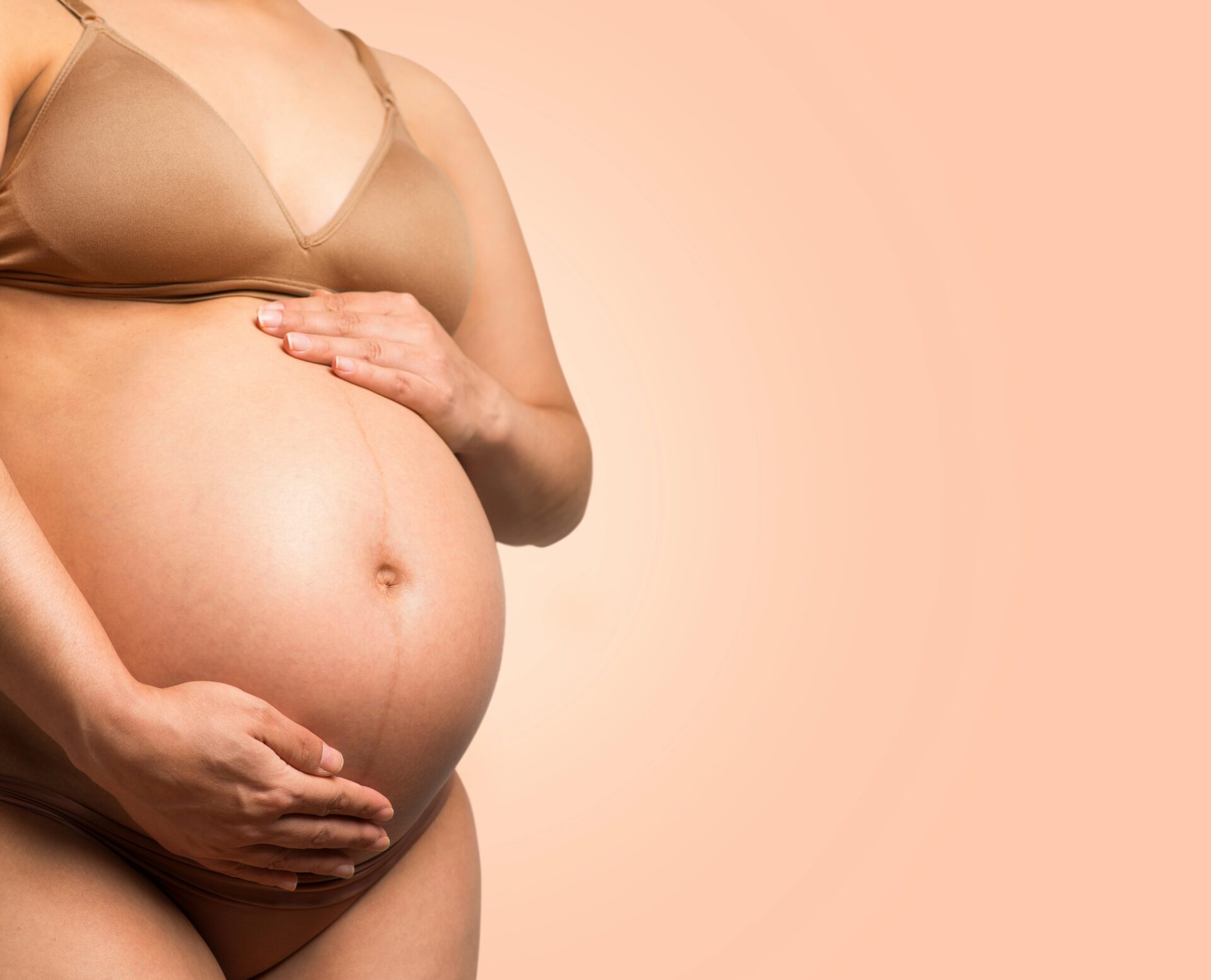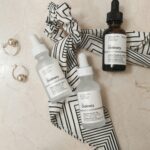This guide sheds light on specific ingredients that, while effective pre-pregnancy, should be avoided whilst you are pregnant.
As we know pregnancy brings undeniable joy, but it also requires adjustments to your daily routines, including your skincare regime. While many beloved products may have served you well pre-pregnancy, certain ingredients are no longer suitable whilst you’re carrying you baby.
Below is our quick spot checklist so you can quickly come back and review, save it so if you’re out and about you can easily refer to this list. We give a full breakdown of these ingredients further into the article but we recommend bookmarking this post and referring back to it whenever you need a quick pregnancy safe skincare checklist.
Ingredients to avoid during pregnancy:
- Retainoids/retinol
- Salicylic acid
- Benzoyl peroxide
- Hydroquinone
- Formaldehyde
- Spironolactone
- Parabens
- Some chemicals SPF
- Botox and fillers
Discover why your should avoid these ingredients:
If you’re new on your pregnancy journey you may be wondering why all of these ingredients need to be avoided. A full breakdown of why we recommend avoiding these ingredients is listed below, along with some alternatives if you find they are currently in your skincare regime.
- Retinoids and Retinol: These potent derivatives of vitamin A are often hailed for their anti-aging properties. However, their potential to impact fetal development means they need to be excluded during pregnancy. Gentler exfoliating alternatives like lactic acid or niacinamide offer safer alternatives.
- Salicylic Acid: While commonly used to combat acne, salicylic acid, particularly in high concentrations, may pose risks during pregnancy. Studies remain inconclusive, but opting for pregnancy-safe acne fighters like zinc and clay masks provides effective solutions without potential concerns.
- Benzoyl Peroxide: This acne-fighting ingredient, while effective, can be highly irritating and potentially enter the bloodstream during pregnancy. Given the limited data on its safety, we recommend erring on the side of caution. You can look to include gentler solutions such as niacinamide.
- Hydroquinone: This skin-lightening agent, often used to address melasma, is best avoided during pregnancy due to insufficient safety data on its safety. Instead, embrace the sun-kissed glow that often accompanies pregnancy and consider topical options after delivery.
- Formaldehyde: This potential carcinogen and skin irritant can lurk in unexpected places like hair gels and cleansers. Choosing formaldehyde-free products throughout pregnancy minimizes unnecessary exposure.
- Spironolactone: This prescription medication, often prescribed for hormonal acne, should be discontinued during pregnancy due to its potential to disrupt hormonal balance. Gentler skincare routines can effectively manage acne while prioritizing the safety of your developing child.
- Parabens: While the research on the safety of parabens in pregnancy remains inconclusive, opting for paraben-free products can provide peace of mind. Abundant paraben-free options exist within the skincare market.
- Certain Chemical Suncreens: Not all sunscreens are created equal. Some ingredients, like oxybenzone and avobenzone, while effective, can potentially be absorbed into the bloodstream. Mineral sunscreens containing zinc oxide and titanium dioxide offer equivalent protection without potential concerns. Exact chemicals to avoid include avobenzone, homosalate, octisalate, octocrylene, oxybenzone and octinoxate.
- Botox and Fillers: These cosmetic procedures should be avoided during pregnancy and breastfeeding due to the lack of safety data and potential risks to the developing fetus.
By approaching skincare with informed caution and opting for pregnancy safe alternatives, you can ensure both your well-being and that of your unborn baby.
Remember if you’re still unsure or have specific needs we always recommend talking to your doctor. They can advise you on any potential concerns with specific ingredients and recommend safe alternatives to suit your needs.
Pregnancy-safe ingredients we love instead:
Hyaluronic Acid: This hydrator plumps the skin and keeps it moist, which is great for pregnancy glow .
Vitamin C: This antioxidant brightens skin and protects against sun damage. Look for products with L-ascorbic acid, a gentle form of vitamin C.
Niacinamide: This ingredient calms redness, minimises pores, and improves skin texture.
Azelaic Acid: Which can help to tackle acne and reduces hyperpigmentation.
Peptides: These stimulate collagen production, giving your skin a firmer appearance.
Read More...



